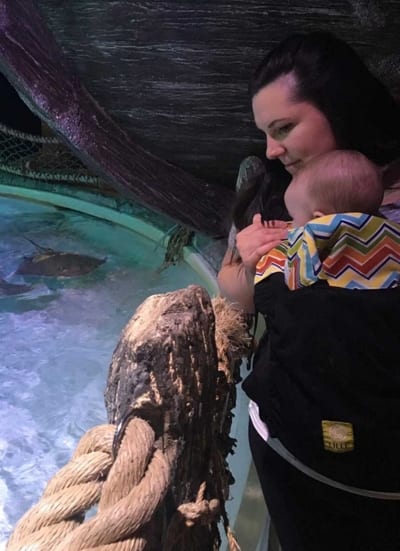Finding Resources For Klinefelter’s In Rural Areas
By Chelsea Castonguay
 When our son was born, my husband and I considered moving to a more urban area for the sake of gaining access to more resources. We live in a rural town of 1,200 people, and 45 minutes away from any services. Additionally, with an aging population in our state and a lack of providers, it can be difficult to get the necessary support services. However, we love our state and didn’t want to relocate. We weren’t willing to sacrifice the level of care our son received, so we had to get creative. Therefore, I wanted to create a guide to help you, our fellow rural-living Klinefelter’s families, figure out how to access great care for your boys.
When our son was born, my husband and I considered moving to a more urban area for the sake of gaining access to more resources. We live in a rural town of 1,200 people, and 45 minutes away from any services. Additionally, with an aging population in our state and a lack of providers, it can be difficult to get the necessary support services. However, we love our state and didn’t want to relocate. We weren’t willing to sacrifice the level of care our son received, so we had to get creative. Therefore, I wanted to create a guide to help you, our fellow rural-living Klinefelter’s families, figure out how to access great care for your boys.
Early intervention:
We can’t stress this enough. Early intervention for Klinefelter’s syndrome boys is key. As soon as you find out, you need to get going on finding services, no matter how old your son is. Some services your boy may need could include a pediatric geneticist, a pediatric endocrinologist, developmental pediatrician, occupational therapist, speech therapist, and physical therapist. This can sound daunting, but the sooner you reach out to folks in your area, the sooner you can get on a waitlist. Some appointments for your boy will start pretty soon after birth (we started with his geneticist and endocrinologist at age 2 months), so having a head start is important.
Ask around:
Some of the best resources are other special needs parents in your community. Parents of special needs kids are fabulous champions for their children, and huge supporters of other parents. Check-in with your local parenting groups to find out who people are seeing in your area. Asking about a specialist’s flexibility, compassion, and bedside manner is critical. We’ve met with specialists who are top in their field but have no compassion. We’ve also met with specialists and pediatricians who may not be the “experts” but are willing to educate themselves, are supportive, kind, and caring. To us, that’s what makes a great care team. If you already have kids, ask your pediatrician or family practitioner for their recommendations. Since they know your family, they might have some ideas on who would be the best fit.
Know your resources:
Raising a boy with Klinefelter’s syndrome can be expensive. This can be stressful, but it’s often very manageable. As a single income family, we needed to get creative about funding our son’s care. Therefore, we started asking about resources we may qualify for. We applied for state insurance to supplement ours, which covers treatments our insurance doesn’t, copays, and prescriptions. Some states have funds specifically to help children with special needs such as Klinefelter’s syndrome, rides, mileage reimbursement, at home visiting services, and other opportunities that aren’t widely publicized. Additionally, some hospitals or medical care systems offer reduced rates for those living rurally, or who are on modest incomes. When in doubt, ask. If you need to get to a larger urban area for treatment, there are various services and scholarships that can significantly offset costs. Most treatment centers have funds specifically for assisting families.
There is a lot of information that comes at you fast when receiving the diagnosis. This can be overwhelming. One of the best ways to combat this is to get organized. In our family, we use a family calendar to keep track of appointments, as well as a Google spreadsheet. In our spreadsheet, we track dates for appointments, the provider we met with, and what our action plan is. So for example, if we meet with the physical therapist, we document what we worked on in the appointment and what our homework is for next time. This makes it way easier for keeping track of milestones, as well as goals.
No matter what, remember as long as you’re doing the best you can, you’re doing the right thing. We are all trying to learn as we go, to provide the best support, and to raise our boys to be great people. You are your son’s first and most important advocate, until he can advocate for himself. Together, we’ve got this!





Leave A Comment